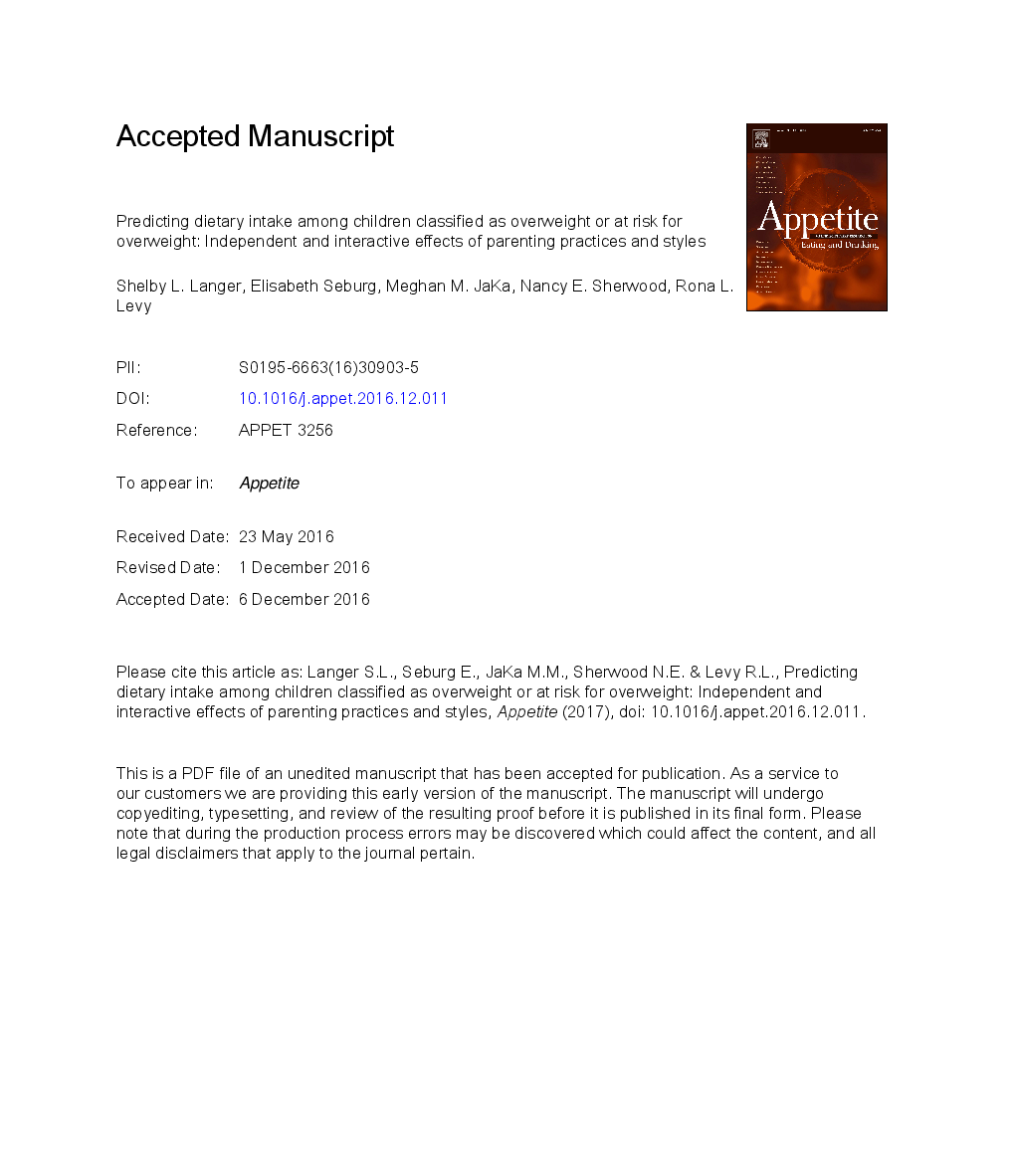ترجمه فارسی عنوان مقاله
پیش بینی میزان مصرف رژیم در کودکان که اضافه وزن دارند یا در معرض خطر اضافه وزن قرار دارند: اثرات مستقل و تعاملی شیوه های والدین و سبک ها
عنوان انگلیسی
Predicting dietary intake among children classified as overweight or at risk for overweight: Independent and interactive effects of parenting practices and styles
| کد مقاله | سال انتشار | تعداد صفحات مقاله انگلیسی |
|---|---|---|
| 131669 | 2017 | 23 صفحه PDF |
منبع

Publisher : Elsevier - Science Direct (الزویر - ساینس دایرکت)
Journal : Appetite, Volume 110, 1 March 2017, Pages 72-79
ترجمه کلمات کلیدی
فرزندان، سبک والدین، نوشیدنی های شیرین شکر، تغذیه محدود چاقی،
کلمات کلیدی انگلیسی
Children; Parenting style; Sugar-sweetened beverages; Restrictive feeding; Obesity;

